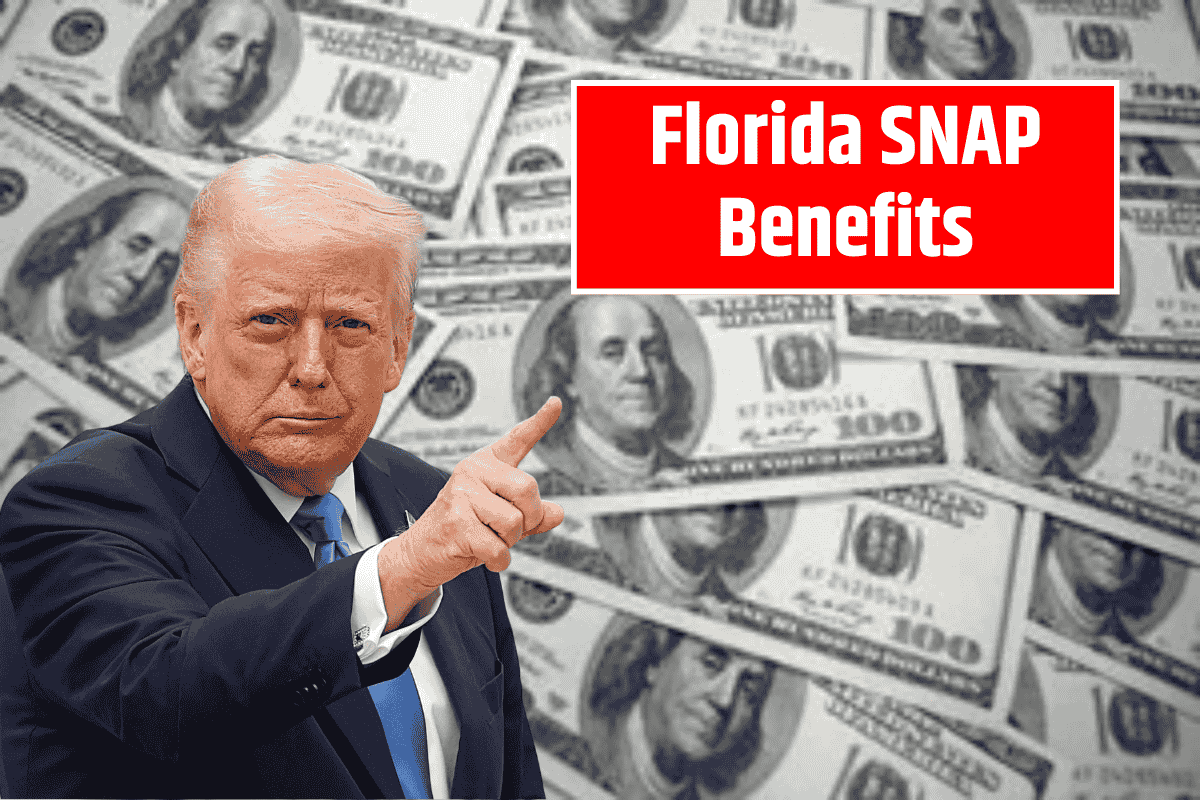In Florida, the Supplemental Nutrition Assistance Program (SNAP) is a lifeline for nearly 3 million residents. Managed by the Department of Children and Families (DCF), this program helps low-income individuals and families buy food essentials through a monthly allowance.
These benefits are delivered through an Electronic Benefit Transfer (EBT) card known as the Florida Access Card, which works just like a debit card at participating stores and supermarkets.
Let’s break down how the program works, who qualifies, and what you need to know about the upcoming September 2025 payment dates.
How SNAP Works in Florida
Florida’s SNAP program follows federal guidelines, but it also includes state-specific flexibilities like Broad-Based Categorical Eligibility (BBCE). This makes it easier for families with slightly higher incomes to qualify, especially if they already receive other types of public assistance.
Once approved, your monthly benefits are loaded onto your Florida Access Card, which can be used at:
Grocery stores
Supermarkets
Approved farmers markets
Online retailers like Amazon and Walmart (for eligible food items)
Who Can Apply for SNAP in Florida
To apply for SNAP benefits in Florida, you must:
Be a certified permanent resident of Florida
Meet specific income limits based on your household size
Fulfill citizenship or legal residency requirements
Provide a Social Security Number (SSN) or proof of application for one
Here’s a quick look at the income eligibility:
| Household Size | Max Gross Monthly Income (200% FPL) |
|---|---|
| 1 Person | $2,510 |
| 2 People | $3,407 |
| 3 People | $4,303 |
| 4 People | $5,200 |
Note: Income limits are updated annually and may vary slightly.
Citizenship and Immigration Status
Applicants must either be U.S. citizens or qualified non-citizens, such as:
Refugees
Lawful permanent residents
Victims of human trafficking
Recent federal changes under H.R. 1 may affect eligibility for some legal immigrants. If your status falls into this category, it’s best to contact your local DCF office for a proper evaluation.
Work Requirements and Exceptions
If you’re an able-bodied adult without dependents (ABAWD), Florida requires you to:
Work or train at least 20 hours a week
However, you may be exempt if you are:
Over the age of 60
Disabled or medically unfit to work
Pregnant
Caring for a child under 6 years old
The state has also removed the savings/resource limit for most households, making it easier to qualify. But if your household includes elderly or disabled members and you exceed income limits, you’ll need to meet a $4,500 asset cap.
How to Apply for SNAP in Florida
You can apply through any of the following:
Online: Visit myflfamilies.com/accessflorida
Phone: Call 1-866-762-2237
In-person: Visit your local DCF office (locations available on the DCF website)
Florida SNAP Payment Dates for September 2025
In Florida, SNAP payments are not sent on a single day. Instead, they’re distributed based on the last two digits of your case number (digits 8 and 9, read backwards). Here’s the payment schedule for the rest of September 2025:
| Date | Case Numbers Ending In |
|---|---|
| September 15 | 49–53 |
| September 16 | 54–57 |
| September 17 | 58–60 |
| September 18 | 61–64 |
| September 19 | 65–67 |
| September 20 | 68–71 |
| September 21 | 72–74 |
| September 22 | 75–78 |
| September 23 | 79–81 |
| September 24 | 82–85 |
| September 25 | 86–88 |
| September 26 | 89–92 |
| September 27 | 93–95 |
| September 28 | 96–99 |
How to Check Your SNAP Balance or Payment Status
You can stay updated on your SNAP payments using:
Online: Use the “Check My EBT Account” tool on the DCF website
Phone: Call the EBT Customer Service Line at 1-888-356-3281
In-person: Visit a local DCF service center
Florida’s SNAP program is a vital source of food security for millions, especially during tough economic times. By understanding how the system works, who qualifies, and when payments are made, you can make the most of the support available.
With flexible eligibility rules, regular monthly payments, and easy access to resources, SNAP continues to help families across the state stay healthy and fed. Just make sure to keep track of your payment date and update your application if your income or household situation changes.
